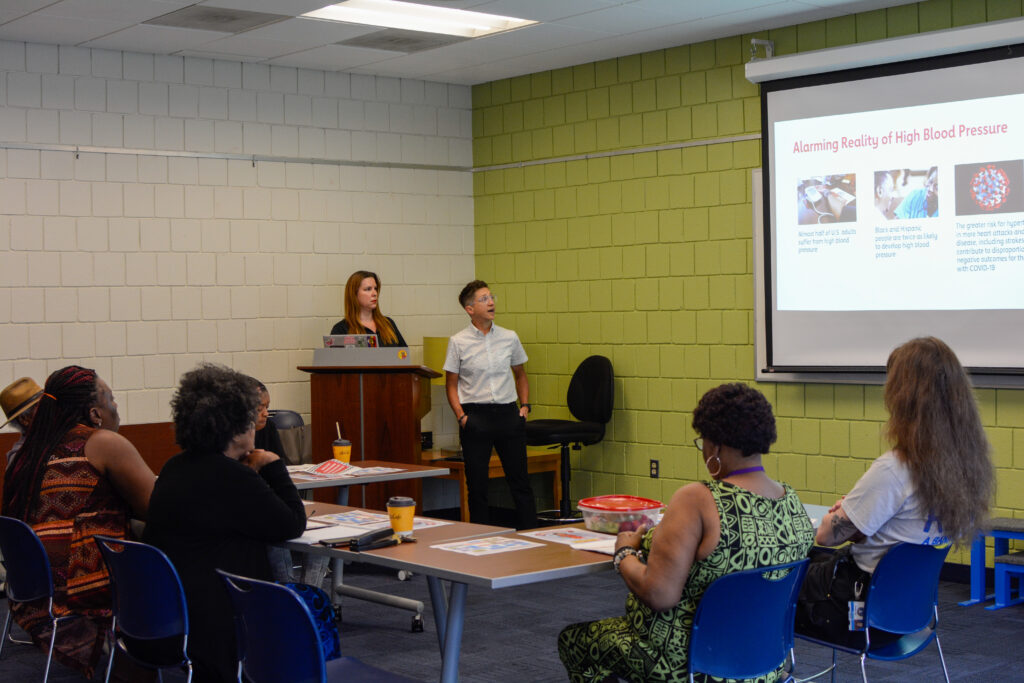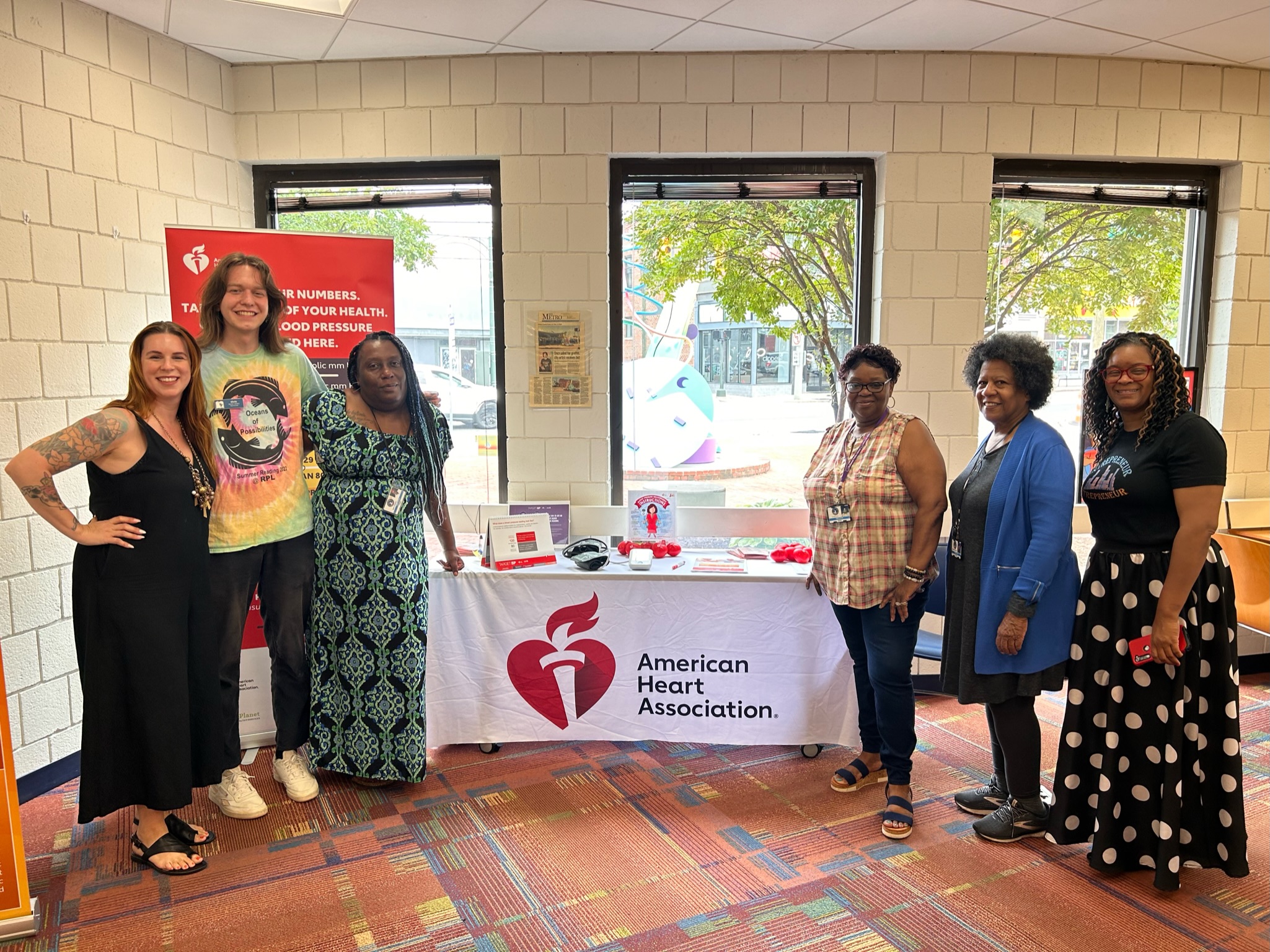Have you heard about the latest addition to the shelves at the library?
The American Heart Association is adding blood pressure monitoring stations and loaner devices to libraries across the Greater Richmond and Tri-Cities centered on equity, placing resources in areas with the highest prevalence of hypertension and barriers to care. And there might be one coming to a branch near you.

This new initiative, Check It Out: Blood Pressure in Libraries, is designed to meet people where they are by bringing health management tools beyond the walls of the physician’s office. Each station contains a blood pressure monitor and cuffs to fit all body types, information to help people understand their readings and other health education materials they can use to learn more about accurate blood pressure measurement and prepare for conversations at upcoming visits with their provider.
Some libraries will be equipped with blood pressure monitoring devices, in addition to the monitoring stations, that are available for check out. Like checking out a book, community members can use the devices in the comfort of their homes for up to two weeks at a time.
As a part of the program, library staff undergo training led by Association staff, local volunteer physicians and librarians from the VCU Medical Center Health and Wellness Library, so they feel prepared to answer questions they get from community members using the stations or checking-out monitors.
“If someone gets a high blood pressure reading and has questions about what to do next, we want the staff at that library to feel equipped and empowered to answer basic questions and help their neighbors figure out next steps for managing their health,” said Robin Gahan, Vice President of Community Impact at the American Heart Association.
One local physician with a passion for heart health and stroke prevention is Dr. Emily Robbins, Medical Director with Encompass Health. Dr. Robbins shares their medical expertise and answers questions from library staff as part of the trainings to successfully launch the program.
“I find the life expectancy differences related to hypertension across the greater Richmond area to be alarming,” said Dr. Robbins. “As a member of this community and as a physician I believe I have a responsibility to help address and improve health literacy access to healthcare. In doing so, we empower individuals to better understand their health and what they can do about their hypertension and other health factors that increase their risk for cardiovascular disease and stroke.”

Checking your blood pressure is a critical part of taking charge of your health, especially if you have been diagnosed with hypertension. Most of the time, there are no obvious symptoms indicative of hypertension. When left untreated, the damage that high blood pressure does to your circulatory system is a significant contributing factor to heart attack, stroke and other health threats.
There are 229,968 adults in Greater Richmond and Tri-Cities with high blood pressure. That’s enough to fill 5,000 city buses. And that’s just those who have ever been told that they have hypertension.
Check-it Out: Blood Pressure in Libraries is a community-based strategy to increase community awareness of blood pressure (BP) and reduce hypertension. More than 1 in 3 individuals have been diagnosed with hypertension. Upon examining the prevalence of high blood pressure among adults in the City of Richmond, the service area of the Richmond Public Library’s branches was overlayed. Working with trusted community settings such as public libraries, we can meet people where they are through monthly BP screenings conducted by trained volunteers held at strategically selected Richmond Public Library branches where communities have a prevalence of 40% or more. As a result, people will have the opportunity to know their numbers, learn about healthy lifestyles, and be connected or reconnected with primary care to support BP monitoring and control.
This program is being made possible through collaboration and support from Richmond Public Libraries, VCU Health’s Pauley Heart Center, Capital Area Health Network, Daily Planet, Capital Area Health Education Center, Dr. Emily Robbins, VCU Libraries’ Health Sciences Library, Petersburg Healthy Living Learning Center at the Petersburg Library, Central Virginia Health Services (CVHS), Crater Health District, Encompass Petersburg, and HCA Virginia Foundation.
